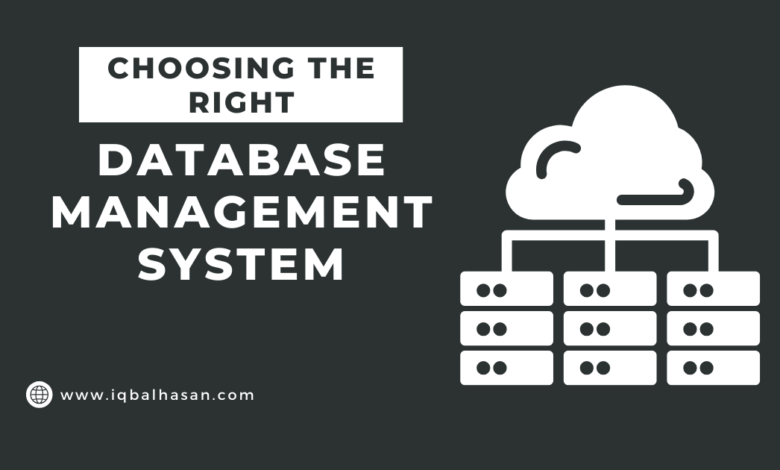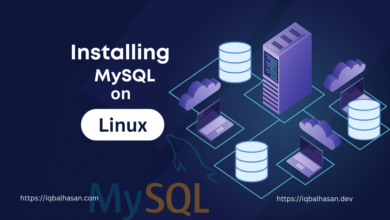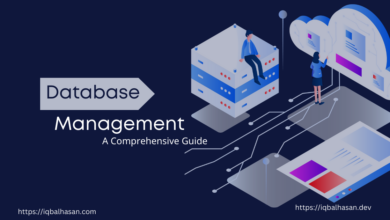Choosing the Right Database Management System: A Critical Decision

One of the most crucial decisions in the realm of database management is selecting the right Database Management System (DBMS). A DBMS is a software system that manages databases, allowing you to store, retrieve, and manipulate data efficiently. The choice of a DBMS depends on your specific needs, the type of data you handle, and your performance and scalability requirements. Here are a few popular DBMS options:
- Relational DBMS (RDBMS): RDBMS, such as MySQL, PostgreSQL, and Microsoft SQL Server, are widely used for structured data with well-defined relationships. They are known for their data integrity, ACID compliance, and strong support for SQL queries.
- NoSQL DBMS: NoSQL databases, like MongoDB, Cassandra, and Redis, are a great fit for unstructured or semi-structured data. They are known for their flexibility and scalability, making them a popular choice for modern, dynamic applications.
- Graph DBMS: Graph databases, such as Neo4j, are designed for data with complex relationships. They excel in applications like social networks, recommendation engines, and fraud detection.
- Key-Value Stores: These databases, like Redis and Amazon DynamoDB, are highly efficient for simple data storage and retrieval, often used in caching and real-time applications.
- Column-family Stores: Column-family stores like Apache Cassandra are optimized for handling large volumes of data distributed across multiple servers.
- Document Stores: Document-oriented databases like MongoDB store data in semi-structured JSON or BSON format, making them versatile for various use cases.
The choice of DBMS is pivotal, as it can significantly impact your system’s performance, scalability, and ability to meet specific business needs. It’s vital to evaluate your data and workload requirements before making this critical decision.
The Future of Database Management: Embracing Innovation
As technology advances, database management is not a static field. Innovations continue to reshape the landscape, offering more efficient, secure, and scalable solutions. Here are a few trends and technologies that are shaping the future of database management:
- Cloud-Based Databases: Cloud database services like AWS RDS, Google Cloud SQL, and Azure SQL Database offer scalable, managed database solutions, reducing the overhead of database administration.
- Blockchain Databases: Blockchain technology is being integrated into databases to enhance data security, integrity, and transparency.
- Machine Learning in Databases: Machine learning and artificial intelligence are being used to optimize query performance, automate routine tasks, and provide predictive analytics.
- Big Data and NoSQL: With the growth of big data, NoSQL databases are becoming increasingly popular, as they can handle large and complex datasets more effectively.
- Real-time Databases: Databases designed for real-time data processing and analytics are essential for applications like IoT and financial services.
In this rapidly evolving field, staying up-to-date with the latest trends and innovations is essential for anyone involved in database management.
conclusion
In conclusion, database management is the unsung hero that underpins our digital world. It plays a critical role in ensuring that data is available, secure, and optimized for various applications. In this blog series, we will explore the intricacies of data modeling, schema design, query optimization, security, and more, providing you with the knowledge and skills to excel in the world of database management. Stay tuned for our upcoming posts as we delve deeper into this vital category and guide you through the ever-evolving world of data management.
Happy Coding 😉



Useful articale